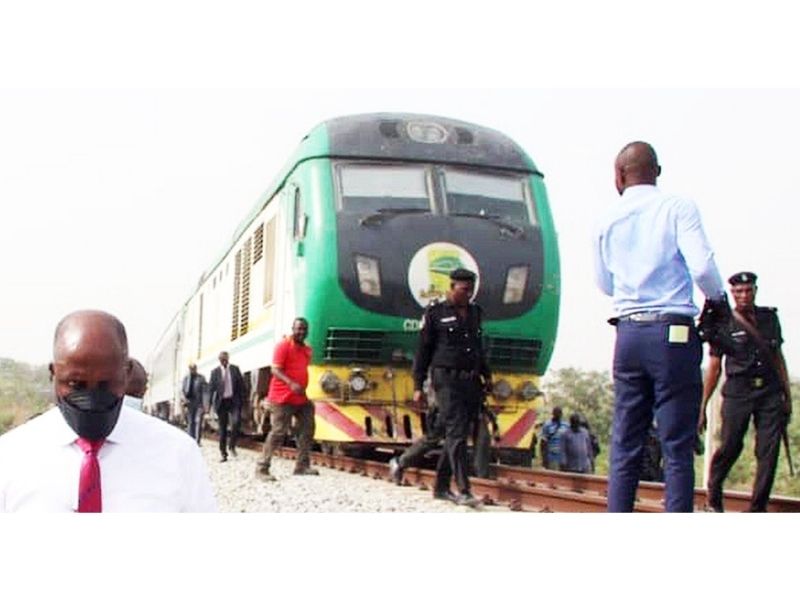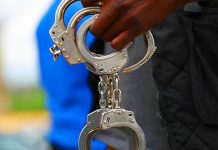Gunmen who abducted dozens of train passengers in northern Nigeria have released one of the hostages – a heavily pregnant woman. In a video message circulating on social media, the woman said the abductors told her she had been freed on “compassionate grounds”.
She was among those kidnapped in March when armed men blew up the railway and attacked a busy train traveling between the capital, Abuja, and Kaduna. At least nine people were killed.
It is not yet clear exactly how many people were kidnapped but pictures released last month by the gunmen showed at least 62 captives.
Kaduna state commissioner for internal security Samuel Aruwan has confirmed to the BBC the release of the hostage, saying she would given medical treatment.
Local media have reported that another of the hostages gave birth in captivity last month.
The hostage-takers had earlier freed a bank executive, also supposedly on compassionate grounds given his old age – although sources said a ransom had been paid in his case.
The Nigerian authorities have blamed the attack on elements from the Islamist militant group Boko Haram who had teamed up with kidnapping gangs operating in north-western Nigeria.
The kidnappers have said they were not seeking a ransom but that the authorities knew their demands, without giving details.
Analysts say they might be demanding a prisoner swap – in exchange for some of their colleagues arrested by the Nigerian security forces.
The Abuja-Kaduna highway is one of the most dangerous roads in the country, and consequently more commuters had started using the railway, which opened in 2016.
After the hijacking it was announced that military aircraft will escort the trains once repair work on the 190km (120-mile) track is completed. It is not known exactly when services will resume.
Kidnapping for ransom has become commonplace across Nigeria.
A report by security research and intelligence firm Beacon Consulting Ltd said that in the first three months of this year, more than 3,500 people were killed and many more kidnapped by armed groups.
Credit: bbc.com









